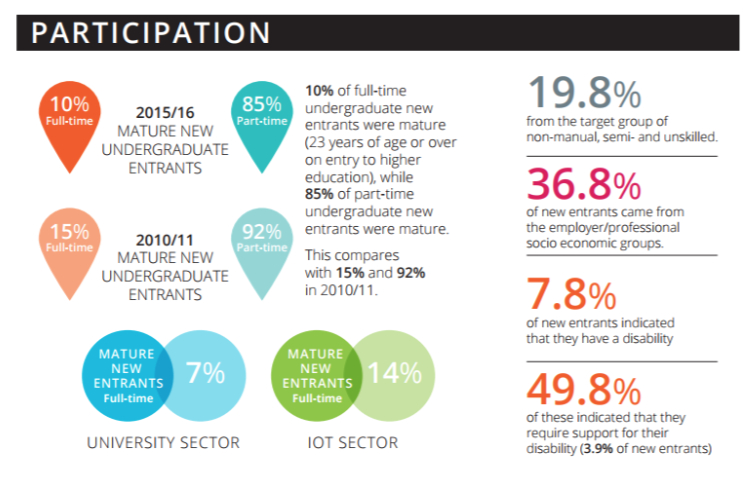The Teaching Enhancement Unit (TEU) is delighted to partner with colleagues in Student Support & Development (SS&D) to implement an initiative focused on staff development in the principles and practices of Universal Design for Learning (UDL). This new initiative aimed at promoting and implementing an inclusive teaching and learning environment is enabled thanks to a recent successful application to the Quality Improvement and Development (QUID) fund from the Quality Promotions Office. The 2017/18 funding call was focused on the theme of ‘Internal Communications’ and sought proposals for projects which aimed to enhance how we share and interact with our internal community in Dublin City University (DCU).
The joint TEU/SS&D initiative intends to engage staff and students in dialogue about UDL, from which an agreed definition will emerge followed by a series of initiatives to raise and develop staff awareness. The initiative will provide guidance and support to enhance communication with learners across all of DCU’s campuses. As this video (from AHEAD, the Association for Higher Education Access & Disability) explains, UDL offers a framework and set of associated principles for curriculum design that promote more flexible modes of teaching, learning and assessment to cater to all learners with varying learning preferences:
UDL aims to improve and optimise teaching and learning for all learners, based on scientific insights into how humans learn; it operates around three overarching principles or guidelines, as summarised in this graphic reproduced from the AHEAD website:

In a nutshell, UDL recognises that a ‘one size fits all’ approach won’t work for learners and that flexible and varying means of engagement, representation and action/expression will allow for a more inclusive learning and teaching environment for all learners. It seeks to ensure that all learners are offered equal opportunities to succeed, premised on the understanding that we all learn differently and this variation in learning aptitudes and preferences must be incorporated into the design of curricula and assessment strategies. As we are aware, there is increasing diversity of participation in Higher Education: although this infographic from the Higher Education Authority (2016) relates to the academic year 2015/16 (we are awaiting updated statistics), it does highlight the varying profile of the Higher Education learner and increasing levels of participation of what might be termed ‘non-traditional’ students:

Therefore, it is incumbent on Higher Education staff and faculty to consider how we can engage with learners with diverse learning needs; the initiative designed by the TEU and SS&D seeks to enhance the teaching and learning experience of all learners through staff development in the principles and practices of UDL.
Starting in January 2018, this project will engage staff and students in conversations about UDL, from which an agreed definition of UDL will emerge. This task will be underpinned by research to document existing levels of expertise and engagement with the principles of UDL, followed by a series of events which will develop staff awareness and provide guidance and support to ultimately enhance communication with students. Through consultation and engagement, we seek through this project to develop an inclusive DCU community, underpinned by the principles and practices of UDL.
Keep an eye on the TEU website for further developments as this project unfolds in 2018! If you would like more information or to get involved please get in touch with Dr Laura Costelloe [Laura.Costelloe@dcu.ie].
References
Association for Higher Education Access & Disability [AHEAD] (2017) The UDL Framework Explained. Available at https://ahead.ie/udl-framework (Accessed 4 December 2017).
Higher Education Authority (2016) Key Facts and Figures. Available at http://hea.ie/assets/uploads/2017/06/HEA-Key-Facts-and-Figures-201516.pdf (Accessed 4 December 2017).

